Methylation, Stress & Mental Health: The Anxiety Connection

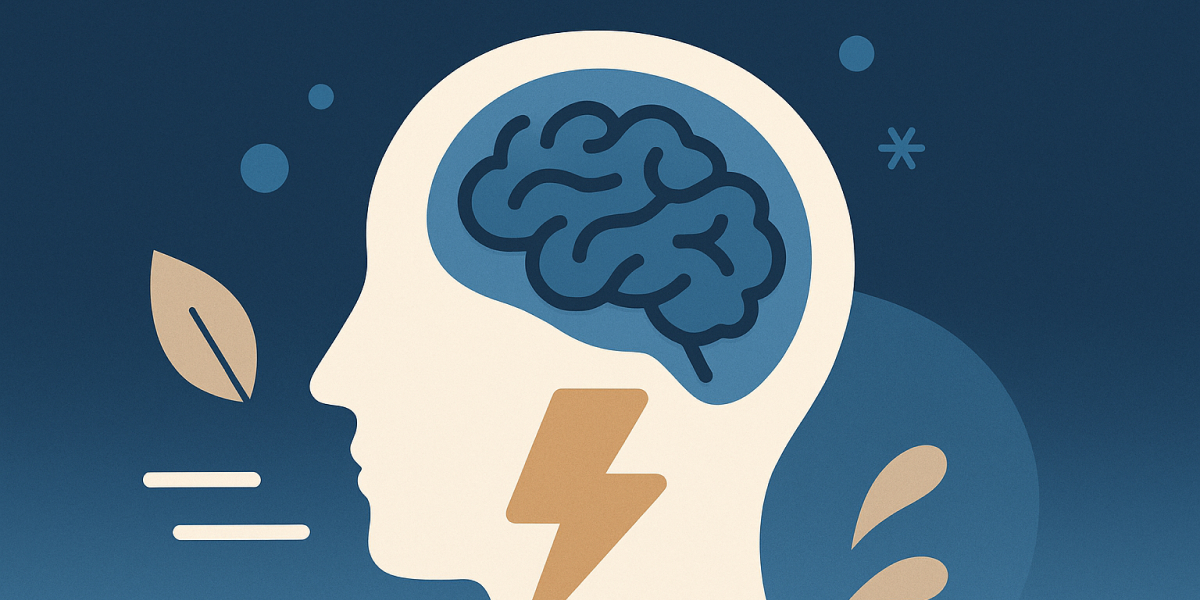
If you've ever felt anxious without an obvious reason, struggled with depression that didn't respond to standard treatments, or experienced that exhausting "wired but tired" feeling that makes sleep impossible, your methylation pathways might be sending you an SOS signal.
The connection between methylation and mental health is one of the most profound, and often overlooked aspects of this biochemical process. It's not just that poor methylation can affect your mood; in many cases, impaired methylation IS the underlying driver of anxiety, depression, irritability, and stress intolerance.
Today, we're exploring why your mental health struggles might have a methylation root cause, and why understanding this connection opens doors to solutions that actually work.
The Neurotransmitter Connection: Why Methylation Affects Your Mood
Your brain relies on neurotransmitters, chemical messengers like serotonin, dopamine, and norepinephrine to regulate mood, motivation, focus, and emotional balance. Here's the crucial part: methylation is directly involved in producing and breaking down these neurotransmitters.
Serotonin: The Mood Stabilizer
Serotonin influences mood, sleep, appetite, and emotional regulation. Low serotonin is linked to depression, anxiety, insomnia, and obsessive thinking.
The methylation link: After serotonin does its job in the brain, it needs to be broken down and recycled. This process requires adequate SAMe (your primary methyl donor). When methylation is impaired, serotonin breakdown becomes inefficient, and paradoxically, you can end up with both serotonin dysfunction AND the inability to properly clear it.
Additionally, serotonin production itself requires specific nutrients that overlap with methylation pathways, particularly vitamin B6 and folate (vitamin B9). MTHFR variants can indirectly affect serotonin by limiting the availability of methylated B vitamins needed for neurotransmitter synthesis.
Dopamine and Norepinephrine: Motivation and Stress Response
Dopamine drives motivation, pleasure, and reward-seeking behavior. Norepinephrine regulates alertness, focus, and your fight-or-flight response. Together, they're critical for stress resilience.
The methylation link: These catecholamines are broken down by an enzyme called COMT (catechol-O-methyltransferase); notice the word "methyltransferase." COMT requires SAMe to function. When methylation is compromised and SAMe is low, COMT slows down, causing dopamine and norepinephrine to linger longer than they should.
What does this feel like?
- Racing thoughts
- Difficulty shutting your mind off
- Heightened anxiety or overstimulation
- Feeling "wired" even when exhausted
- Mood swings or emotional reactivity
Some people also have COMT gene variants that naturally slow this enzyme down (often called "slow COMT"). Combined with MTHFR or other methylation issues, this creates a perfect storm for anxiety and stress intolerance.
The BH4 Pathway: The Hidden Player
There's another layer here called the BH4 (tetrahydrobiopterin) pathway, which is essential for producing serotonin, dopamine, and norepinephrine. BH4 synthesis depends on (you guessed it!) adequate methylation and specific nutrients like folate.
When methylation is impaired, BH4 production suffers, and neurotransmitter synthesis becomes compromised from multiple angles. This is especially relevant for the A1298C MTHFR variant, which specifically impacts BH4 production more than the C677T variant does.
Here's why this matters:
People with A1298C variants often experience:
- Anxiety and heightened stress reactivity (low dopamine/norepinephrine regulation)
- Depression that doesn't respond to standard SSRIs (insufficient serotonin production)
- "Wired but tired" feeling (catecholamines aren't being properly regulated)
- Mood swings and emotional sensitivity
- Normal homocysteine levels (which can be confusing, blood work labs look fine but symptoms persist)
Meanwhile, those with C677T variants tend to show:
- Elevated homocysteine on labs (clear biomarker)
- More physical symptoms: fatigue, brain fog, cardiovascular concerns
- Detoxification struggles
- Inflammation and oxidative stress
Compound heterozygous individuals (one copy of C677T + one copy of A1298C) often get hit from both angles, they have methylation issues AND neurotransmitter dysregulation. This explains why some people struggle with both anxiety/depression AND physical symptoms like chronic fatigue or cardiovascular risk.
This is why some people with MTHFR variants experience treatment-resistant depression or anxiety, the root cause (impaired BH4 and neurotransmitter production) isn't being addressed by standard psychiatric medications alone.
The Cortisol-Methylation Cycle: Why Stress Makes Everything Worse
Stress and methylation have a bidirectional relationship, each affects the other in a vicious cycle.
How Stress Impairs Methylation
When you're stressed, your body prioritizes survival. Cortisol (your primary stress hormone) rises, and your body diverts resources toward immediate threat response and away from "non-essential" processes like optimal methylation.
Specifically, chronic stress:
- Depletes methyl donors: Stress increases the demand for SAMe to produce stress-response neurotransmitters and support the adrenal glands. If you're already methylation-impaired, your SAMe reserves get depleted quickly.
- Reduces BHMT activity: Remember BHMT, the backup methylation pathway? Elevated cortisol downregulates BHMT, removing one of your safety valves for managing homocysteine.
- Increases nutritional demands: Stress burns through B vitamins, magnesium, and other cofactors needed for methylation. Chronic stress without adequate nutritional support creates deficiencies that worsen methylation function.
- Triggers inflammation: Chronic stress promotes systemic inflammation, which further taxes methylation pathways as your body tries to regulate immune responses and clear inflammatory byproducts.
How Poor Methylation Impairs Stress Resilience
On the flip side, when methylation is already compromised, your ability to handle stress plummets:
- Neurotransmitter imbalances make you more reactive, anxious, and emotionally volatile
- Poor cortisol regulation means you can't efficiently turn off the stress response, leaving you in a state of chronic activation
- Reduced detoxification means stress-related toxins and metabolites accumulate, adding to your physiological burden
- Mitochondrial dysfunction (which methylation supports) leaves you with less energy to cope with stressors
The result? You become stress-intolerant. Small challenges feel overwhelming, and you struggle to bounce back from difficulties that others seem to handle with ease.
The Inflammation Bridge: Connecting Mental and Physical
Here's a critical piece many people miss: methylation sits at the intersection of mental health and inflammation. When methylation is impaired, inflammation tends to rise, and inflammation is now recognized as a major driver of depression and anxiety.
How this works:
- Poor methylation → elevated homocysteine: High homocysteine is pro-inflammatory and damages blood vessels, including those in the brain.
- Impaired detoxification → toxin accumulation: When your liver can't methylate efficiently, toxins build up, triggering immune responses and inflammation.
- Reduced glutathione production: The CBS pathway (part of the methylation network) feeds into glutathione production. When compromised, oxidative stress and inflammation increase.
- Neuroinflammation: Inflammation in the brain directly affects neurotransmitter function, mood regulation, and cognitive performance. This is often called the "cytokine theory of depression."
This explains why someone with methylation issues might experience BOTH anxiety/depression AND physical symptoms like joint pain, digestive issues, or chronic fatigue, they're all connected through inflammation.
"Wired But Tired": The Methylation-Adrenal Connection
One of the most common complaints we hear is: "I'm exhausted, but I can't sleep. My mind races at night, but I have no energy during the day."
This paradoxical state is a classic sign of methylation-impaired stress response:
The "Wired" Part:
- Slow COMT (genetically or due to low SAMe) means catecholamines stay elevated
- You're overstimulated, anxious, mentally restless
- Cortisol rhythm is disrupted, often high at night when it should be low
The "Tired" Part:
- Mitochondria can't produce adequate ATP (energy) without proper methylation
- Chronic stress has depleted your adrenal reserves
- Inflammation and poor detoxification create a systemic energy drain
- Sleep is disrupted, preventing recovery
This isn't "adrenal fatigue" in the traditional sense, it's a methylation-driven dysregulation of your entire stress response system.
Sleep Disruption: When Methylation Steals Your Rest
Poor sleep can be both a cause and consequence of methylation issues:
Methylation affects sleep through:
- Serotonin imbalances (serotonin converts to melatonin for sleep)
- Elevated nighttime cortisol due to impaired stress regulation
- Magnesium depletion (methylation requires magnesium; stress depletes it)
- Inflammation and oxidative stress disrupting circadian rhythms
Poor sleep worsens methylation by:
- Increasing cortisol and stress hormone production
- Depleting nutrients needed for methylation
- Impairing detoxification (which happens primarily during sleep)
- Reducing the body's ability to repair and regenerate methylation enzymes
It's a feedback loop that can feel impossible to break without addressing the root methylation issues.
How MTHFR Variants Shape Your Stress Response: What It Actually Feels Like
Understanding the biochemistry is one thing, but how does this translate to daily experience? The two main MTHFR variants can create distinctly different patterns of stress intolerance:
Living with C677T Variants:
- Under stress: Feel overwhelmed, mentally foggy, slow to recover, physically depleted
- On a poor diet: Persistent fatigue, headaches, mood dips, general malaise
- During high-stress periods: Inflammation flares, brain fog worsens, feel "stuck" in stress mode
- Physical manifestations: Cardiovascular symptoms, detox struggles, elevated homocysteine
Living with A1298C Variants:
- Under stress: Anxious, jittery, racing thoughts, cortisol spikes quickly
- On a poor diet: Insomnia, feeling "wired but tired," mood swings, emotional reactivity
- During high-stress periods: Difficulty calming down, sleep disruption, heightened anxiety
- Physical manifestations: Often normal homocysteine but significant neurotransmitter-driven symptoms
Compound Heterozygous (C677T + A1298C):
- Experience both patterns: Physical depletion AND mental/emotional reactivity
- Feel the cascade: Brain fog + anxiety, fatigue + insomnia, inflammation + mood instability
- Complex presentation: Multiple body systems affected, often misdiagnosed or under treated
These aren't just "personality types", they're predictable biochemical patterns that explain why stress hits different people so differently, even when exposed to similar stressors.
Self-Assessment: Is Methylation Affecting Your Mental Health?
Consider whether you experience several of these patterns:
Mood & Emotional Symptoms:
- Depression or anxiety that hasn't responded well to standard medications
- Feeling emotionally "raw" or easily overwhelmed
- Irritability or mood swings without clear triggers
- Obsessive or intrusive thoughts
- Difficulty experiencing pleasure or motivation (anhedonia)
Stress Response Patterns:
- Feeling "wired" or overstimulated frequently
- Difficulty relaxing even when you want to
- Poor stress tolerance, small issues feel like big problems
- Slow recovery from stressful events
- Feeling like you're always "on edge"
Sleep & Energy Issues:
- Racing mind at bedtime despite physical exhaustion
- Difficulty falling or staying asleep
- Waking feeling unrefreshed despite adequate sleep hours
- Energy crashes in the afternoon
- Chronic fatigue that doesn't improve with rest
Cognitive Symptoms:
- Brain fog or difficulty concentrating
- Memory problems
- Difficulty making decisions
- Mental fatigue, especially with complex tasks
If you're nodding along to many of these, methylation support could be a game changer for your mental health.
The Path Forward: Why This Understanding Matters
Recognizing that your anxiety, depression, or stress intolerance might be rooted in methylation changes everything. It means:
- Your mental health struggles aren't "all in your head", there's a possible biochemical explanation
- Standard psychiatric medications might not address the root cause, though they may still play a role in comprehensive treatment
- Targeted nutritional and lifestyle support can make a profound difference, often where other approaches have failed
- You have agency, through testing, targeted supplementation, and lifestyle modifications, you can support these pathways
It also explains why some people feel dramatically better with relatively simple interventions, methylfolate, B12, magnesium, stress management while others need more comprehensive approaches. The key is understanding YOUR specific methylation profile and how it's showing up in your mental health.
What's Next
We've explored how methylation affects your mind and emotional resilience. But the impact doesn't stop there. In the next article, we'll examine how these same pathways influence your physical health, from cardiovascular function to detoxification, hormone balance to longevity.
The thread connecting them all? Methylation is the master regulator working behind the scenes in virtually every system.



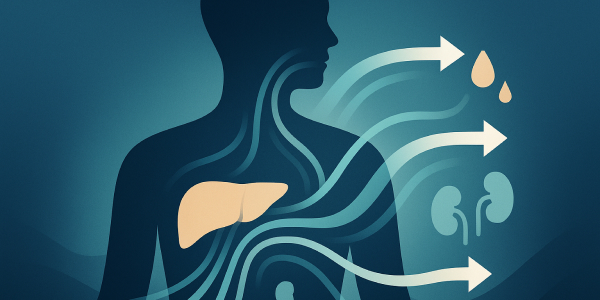
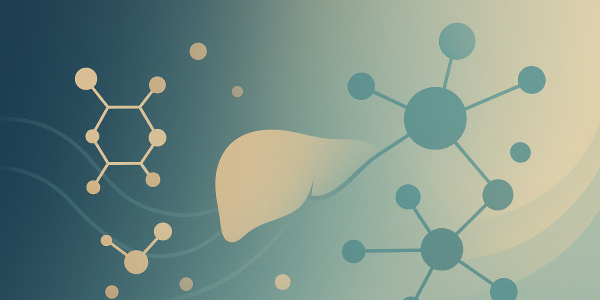


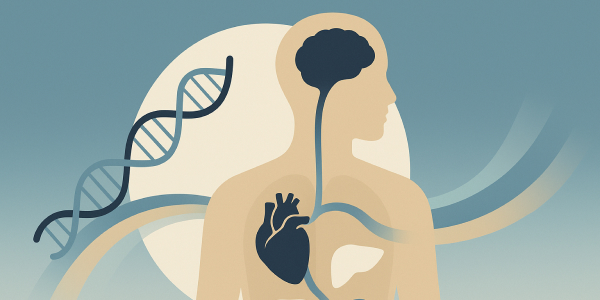


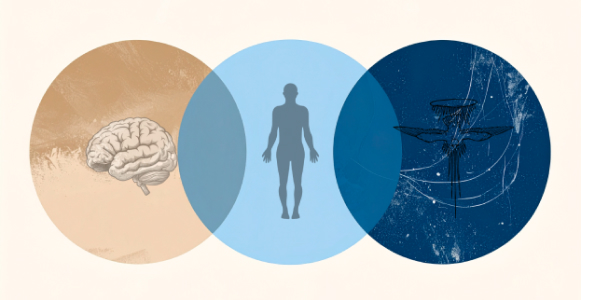
.svg)